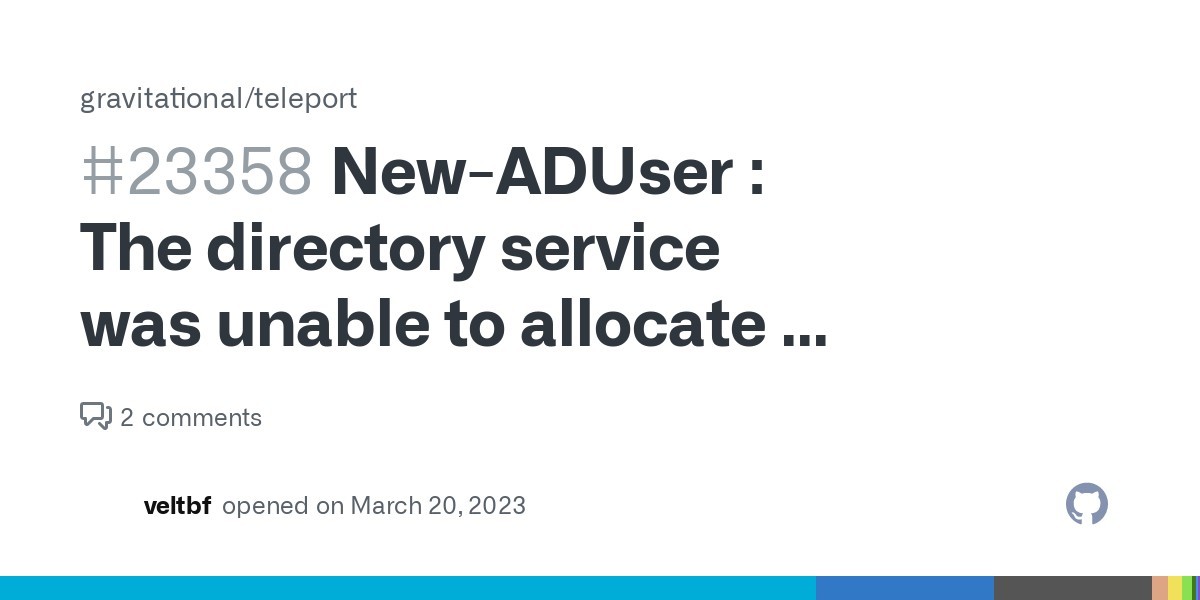Understanding the Error Message
The "The Directory Service was Unable to Allocate a Relative Identifier" error typically surfaces within Windows Server environments. This error occurs when the system encounters complications while attempting to allocate a Relative Identifier (RID) during the process of creating security identifiers (SIDs) for various objects, including users, groups, or computer accounts.
Causes of the Error
Understanding the root causes of this error is the first step in effectively resolving it:
RID Pool Depletion
Explanation: Windows Server relies on RIDs to generate unique SIDs for objects. If the RID pool becomes exhausted, the system is unable to allocate a new RID, leading to this error.
Solution: Extend the RID pool by modifying the "RIDMaster" registry key on the Primary Domain Controller (PDC) emulator role holder.
Replication Problems
Explanation: In a multi-domain environment, replication issues between domain controllers can result in inconsistencies in RID pool allocations.
Solution: Use tools like "repadmin" to diagnose and resolve replication problems between domain controllers.
Outdated Server Software
Explanation: Running outdated or unsupported versions of Windows Server can contribute to various issues, including problems with RID allocation.
Solution: Keep your Windows Server operating system up-to-date with the latest patches and updates.
Corrupted Active Directory Database
Explanation: A corrupted Active Directory database can disrupt the allocation of RIDs.
Solution: Perform a database integrity check using the "ntdsutil" utility to identify and repair any database corruption.
Consequences of the Error
The "The Directory Service was Unable to Allocate a Relative Identifier" error can lead to several critical consequences:
User Authentication Problems: Users may encounter difficulties when trying to log in or access network resources, leading to productivity losses.
Group Membership Issues: Group memberships and associated permissions may not be accurately assigned, potentially compromising security.
System Instability: If left unresolved, this error can cause the server to become unstable or even crash, resulting in downtime and potential data loss.
Conclusion
In conclusion, the "The Directory Service was Unable to Allocate a Relative Identifier" error can be a formidable challenge for Windows Server administrators. However, with a systematic approach to understanding its causes and implementing the appropriate solutions, you can maintain the integrity and reliability of your network. Promptly addressing this error not only ensures seamless operations but also upholds the security and stability of your IT infrastructure. Remember, a well-maintained and up-to-date server is the foundation of a robust and efficient IT environment.








